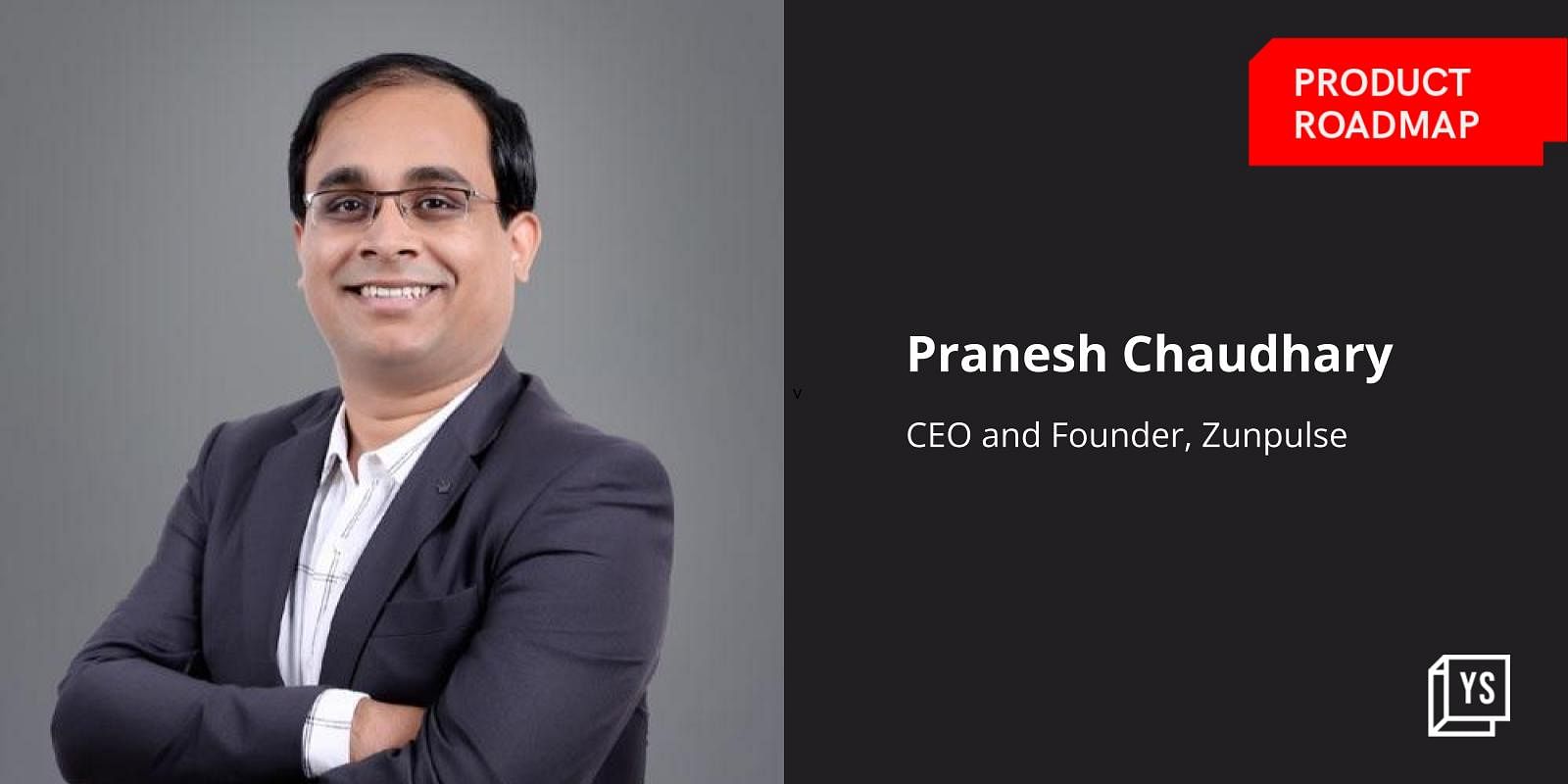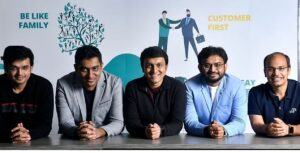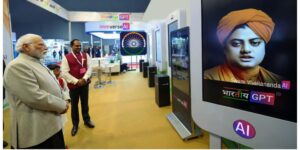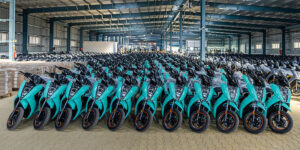From smart doorbells and door locks to geysers and coffee-makers, smart home devices, once considered far-fetched ideas, have become a reality.
And while several companies provide smart devices, users often get overwhelmed while running these due to the difference in user interface designs. Add to this, the installation of smart solutions into the existing home infrastructure can be both time-consuming and messy.
Then, there is also the issue of managing energy consumption through these smart home solutions.
This is where , a plug-and-play range of smart products that allows homeowners to digitally and efficiently manage their smart home with one single application, comes into the picture.
The rise of Zunpulse
In 2016 Pranesh Chaudhary started ZunRoof as a solar rooftop company. He soon realised that energy savings needed a deeper commitment. The startup then worked on building a plug-and-play range of smart products, a project that eventually led to the birth of Zunpulse in 2020.
Zunpulse, launched by Pranesh and Sushant S, uses the Internet of Things (IoT) and Artificial Intelligence (AI) to provide convenience and security to its customers.
“Currently we offer smart geysers, smart room heaters, smart lighting, smart fans, smart air purifier, smart water purifier, smart door locks, smart video doorbell,s and many other smart products. Any customer with a Wi-Fi connection at their home simply needs to plug our devices with a power supply and can control their home with just one tap on the Zunpulse mobile app,” says Pranesh.
In 2021, the Zunpulse team saw a 3X growth in its smart electrical appliances revenue.
“In our last financial year, we did about Rs 41 crores in revenue, and this year we will look to close on a very strong footing. We will exit this financial year with a Rs 100 crore annualised revenue run rate and do a Rs 400 crore annualised revenue run rate in two years. Given the growth and customer’s zeal for India’s own IoT brand – Zunpulse, we are assured that we would be able to impact 5 million homes by 2025,” says Pranesh.
The plug-and-play model
The Zunpulse app, according to the startup, helps capture key metrics like–which products are being used at what particular time? Which products are using more energy? How to optimise the utilisation of energy through the Zunpulse range of products?
“We can also collect diagnostic data on the basis of the number of times the device restarted, Wi-Fi connected and disconnected, the Wi-Fi strength, and failed attempts to connect with the device,” the co-founder says.
All this is done by IoT and AI-led technologies that read and analyse data as the products are being used and controlled via the Zunpulse app.
Until a few months ago, the startup had assessed over 3,50,000 homes, designed over 50,000 rooftop solar systems in over 75 cities in India, owing to a 20 MW+ of rooftop solar capacity. The startup says it has saved over Rs 50 crore in electricity bills for its customers, and reached $1 million monthly revenue from the residential solar rooftop brand.
Starting from a core problem
Pranesh, who is from Kanpur, and his friend and co-founder Sushant, from Muzaffarpur, have both dealt with the lack of regular power supply in their hometowns.
“But this didn’t deter us from obtaining admission into the Indian Institute of Technology-Kharagpur in 2005. Our journey as IITians marked the start of our 16-year friendship. After graduating, we pursued our respective corporate careers until I decided to leave my job in London and return home,” says Pranesh.
Their discussions around power cuts is what eventually led to the idea of Zunpulse.
He adds, “When we got together to contemplate running a startup, we realised that electricity is a sector which we feel very strongly about. Besides regular access, we believe that electricity supply and consumption are things households shouldn’t have to worry about. For example, if you’re an upper-middle-class resident living in Bengaluru, Gurugram or Mumbai, you don’t even think about these issues. But we need to fix the supply and consumption of electricity in Indian homes. It can’t just be about supply, but consumption as well.”
The duo assembled a team of A-rated players with expertise in IoT, apps, firmware, brand-building and distribution to incorporate Zunpulse with a mission to deliver smarter choices to all electricity needs in every home.
The first half of the problem was to provide access to clean, smart, and free electricity via solar. The second half of the puzzle involved efficient utilisation of this energy through IoT.
Zunpulse products
Connecting the dots with IoT
With two years of research and development for leveraging IoT for efficient utilisation of energy, the duo created an in-house developed IoT-enabled hardware range that included eleven smart devices under four categories —lighting, security, control, and purifiers. All of these solutions worked with one single app over Wi-Fi without requiring any wiring change at all in homes.
The startup currently operates in three segments that include ZunRoof (residential rooftop segment catering to urban areas, which was launched in 2016), zunvolt (offering a wide range of electrical products, which was launched in May 2020) and Zunpulse (a complete smart home solution to utilise electricity in an efficient manner, which was launched in October 2020).
“With our main focus on Zunpulse now, the basic value proposition for a customer is the ability to control their electrical appliances (AC, TV, geyser, lights, fans, RO, air purifier) with their smartphone or voice,” says Pranesh.
Zunpulse’s ability to help users efficiently control home smart devices via a single platform distinguishes it from other alternatives in the market, the co-founder says.
“However, we have an entire ecosystem of product range ready to be controlled from just one app, while other players have one, two or three smart devices. Additionally, we realised that a large chunk of customers needed help during installation and product usage,” says Pranesh.
Pranesh says the startup has created a consolidated network of connections through which users can connect and control all the smart devices through one single app. The device in hand connects securely with the app through which customers can log in, control, and monitor their appliances and devices.
Other offerings
“Our company specifically focuses on D2C (direct-to-home) services to offer smart products for Indian households via an omnichannel presence for maximum reach,” says Pranesh.
The first rendition of its products ran for 1-2 months initially as the startup conducted design iterations, the co-founder says.
Pranesh explains the team tried to make the platform user-friendly for the customers.
“As the products started moving out of the MVP we developed use cases in mind and started building iterative hardware designs,” he says.
“We initiated with diagnostic code that would keep a check on the device internally. We have also collected diagnostic data on the basis of the number of times the device restarted, Wi-Fi connected and disconnected, the Wi-Fi strength, and failed attempts to connect with the device. Even after working on customer feedback we ran multiple in-house tests and made improvements on the basis of that,” says Pranesh.
He adds that the team’s realisation to upgrade the product relied heavily on upgrading technology and customer satisfaction..
“One major change was to implement a watchdog in the devices. This watchdog would sense the signals of the device to ensure that it is in working condition. If the watchdog finds the device in a hung-up state then it would initiate a hard reset. We also worked on building features in the app and labelled them to create a machine learning model to understand which users were using the app maximum and were retaining. This model also predicted user behaviour,” says Pranesh.




![Read more about the article [Funding roundup] Shaka Harry, Veg Route, BugBase, Shri Chyawan Ayurved raise early-stage deals](https://blog.digitalsevaa.com/wp-content/uploads/2022/07/Image5wy1-1630828923435-300x150.jpg)





